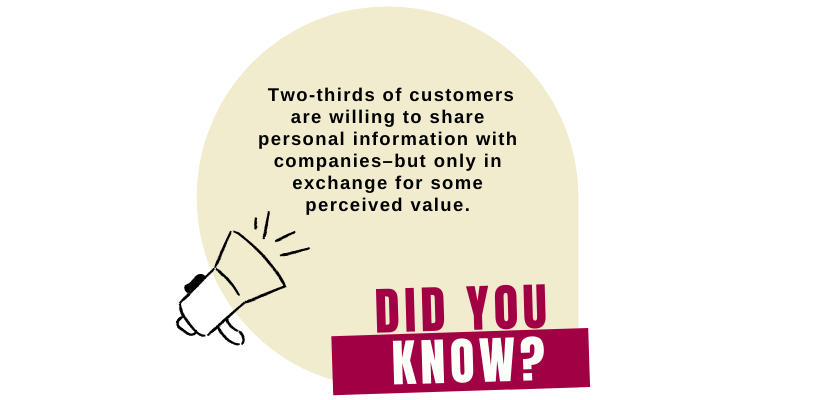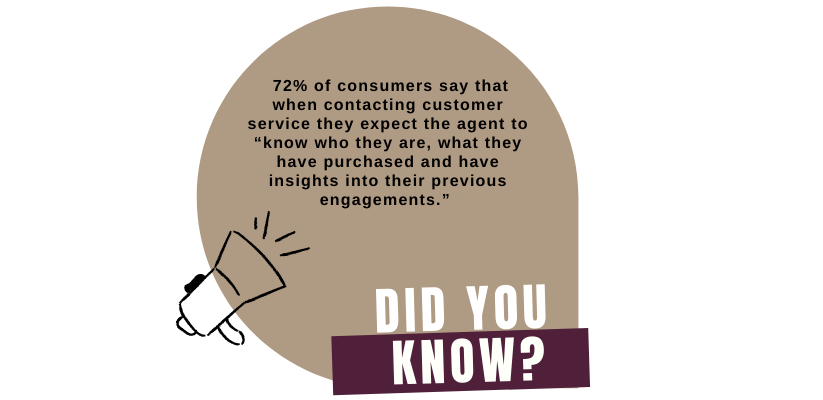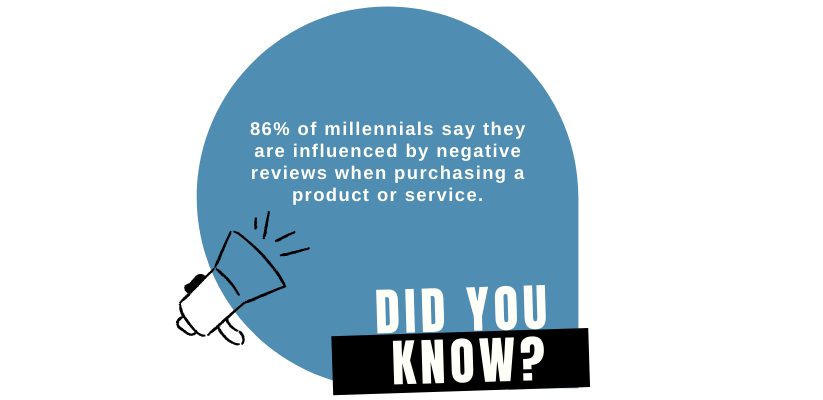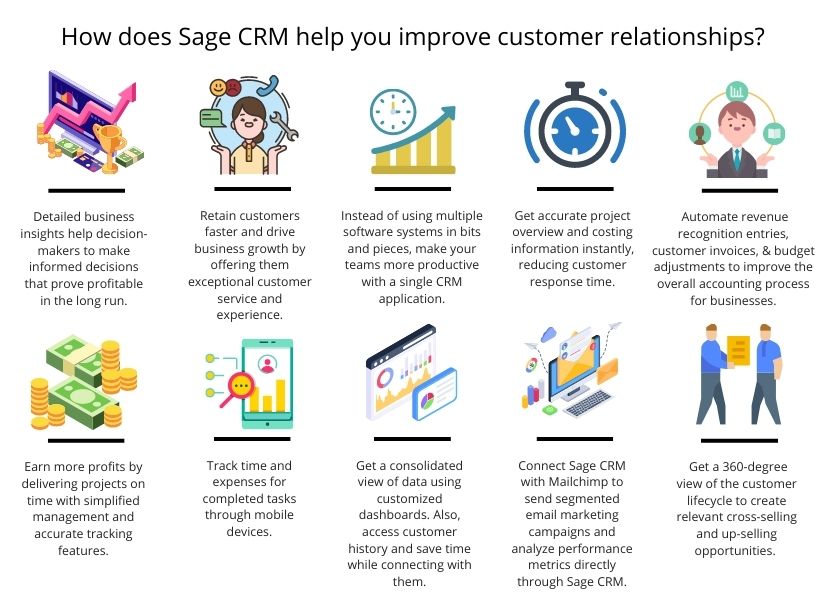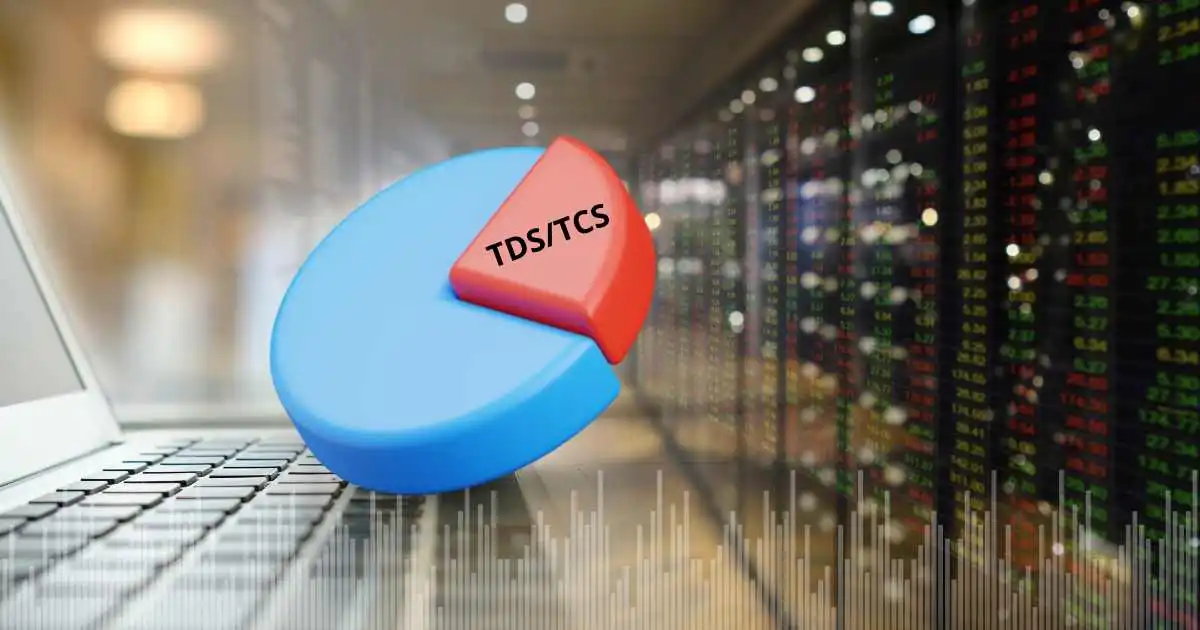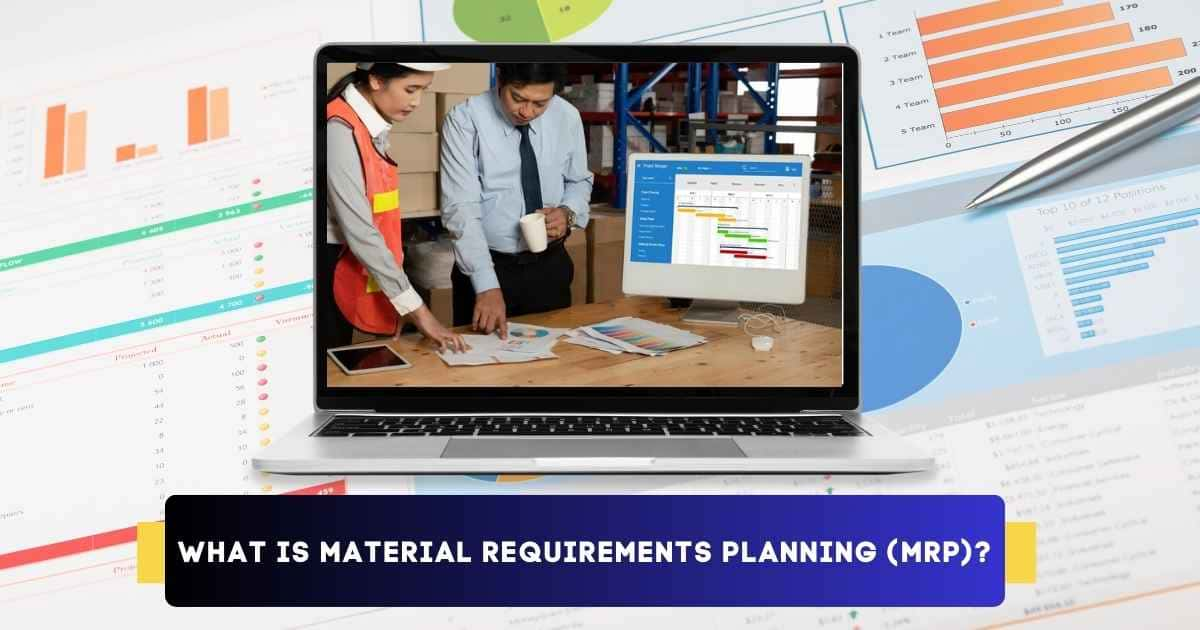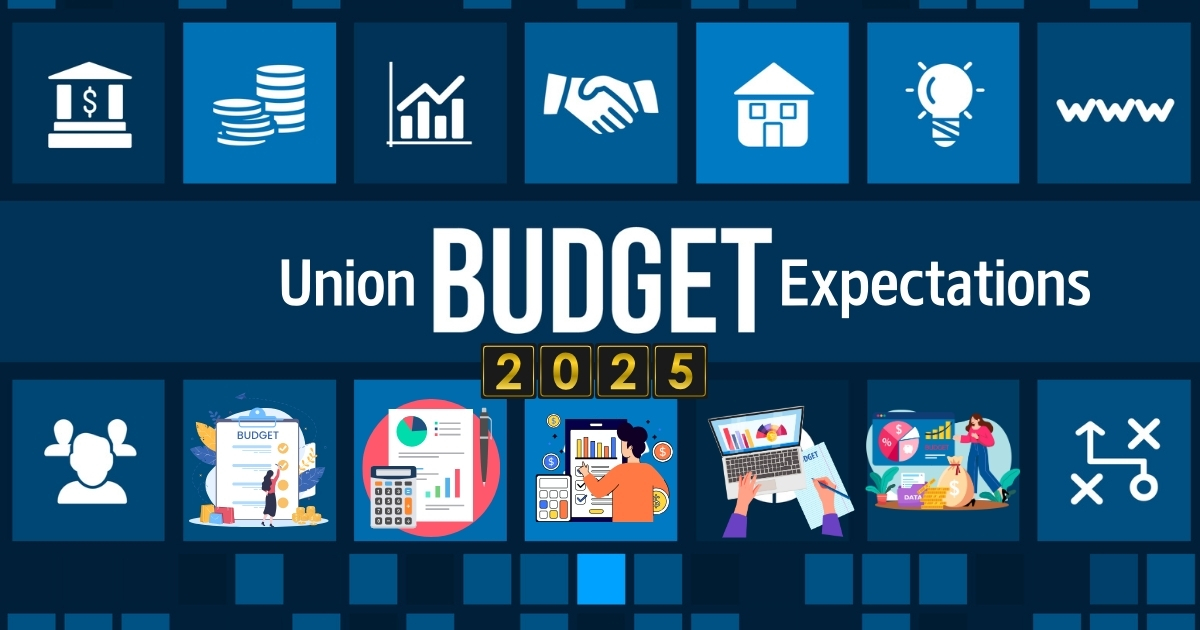Summary: An ERP software allows companies across industries to significantly improve their efficiency, maximize their productivity, eliminate manual tasks through automated operations, minimize administration costs, and build long-lasting customer relationships. ERP software has become the backbone of every industry, thanks to its industry-specific features. For example, the ERP software’s Customer Relationship Management (CRM) module has gained massive attraction in the past few years since companies started brainstorming customer-specific strategies. This blog will discuss why CRM-enabled ERP systems are crucial for your organization and the benefits you will get by implementing one.
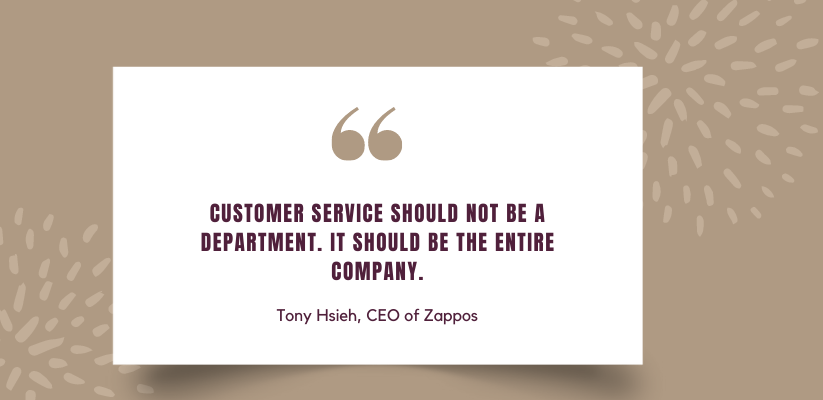
Streamlining business functions is essential for all businesses due to the increase in competitive players and market pressure. Also, in today’s business ecosystem, customers are spoilt for choice. If you fail to provide the best quality products and services to your customers, they won’t hesitate to switch to your competitors. Customer loyalty has indeed become a hard asset to achieve.
But organizations are slowly opening up to the idea that technology can help them find an appropriate target audience and build robust relationships with them. And this is possible with ERP software.
An ERP software has various modules specially built for managing customer relationships, such as billing, invoice, sales orders, responding to customer queries, and fulfilling on-premise service requests.
Here are 4 ways how CRM-enabled ERP systems help companies improve customer relationships:
1. Customer information
Organizations can brainstorm effective strategies for customers based on the following parameters:
- Geographic
- Demographic
- Psychographic
- Behavioral
For segregating customers based on the above data, companies need real-time information. CRM-enabled ERP systems store essential customer information in data repositories that can be written, accessed, edited, and shared only by verified stakeholders. It also holds details regarding customer orders, inventory levels, product catalogs, and other data points that help understand the target audience.
2. Competitive pricing
Companies across industries are facing several challenges to find loyal customers due to various reasons, including:
- Multiple competitive players
- Compliance issues
- Pressure for adhering to environment-friendly practices
- Competitive pricing
Let’s see how CRM-enabled ERP systems impact competitive pricing.
- They help procure raw materials at competitive prices.
- They reduce manufacturing costs.
- They minimize distribution & logistics costs.
Moreover, CRM-enabled ERP systems also efficiently manage price fluctuations resulting from different product orders and sizes. Remember that your client base will expand if you provide the best quality customer service at competitive prices.
<<<Also Read: Role of technology innovation in improving customer service>>>
3. Better handling of customer data
Most traditional companies have several data silos for storing different data points. For example:
- The sales & marketing department stores customer details like names, contact numbers, buying patterns, and past purchases.
- The finance & accounting team stores bills & quotes for each product that a customer has purchased in the past.
- The customer relationship unit stores all pending customer queries and fulfilled service requests.
- The inventory & warehouse department stores data regarding inventory levels and the precise location of finished products in the warehouse.
But multiple data silos restrict the capability of different departments to get a comprehensive view of business processes and functions.
On the other hand, CRM-enabled ERP systems integrate various data silos, allowing business stakeholders to get a unified view of their customer base. This way, they can brainstorm effective strategies, understand changing market conditions & customer preferences, and forecast what customers are most likely to buy in the coming times. Therefore, CRM software plays a crucial role in developing robust and long-lasting customer relationships.
4. Enhance customer experience
You might have heard the maxim “Customer is the king”. It’s because no business can thrive without having a robust customer base. Therefore building everlasting customer relationships is crucial for every business.
Here’s how CRM-enabled ERP software can enhance customer experience:
- Decision-makers can employ different engagement strategies for each customer based on their likes, dislikes, and wants.
- Troubleshooting teams can reach customers through various communication channels, including emails, social media, calls, live chats, etc.
- The product development department can tweak the product based on customer suggestions, recommendations, and feedback.
- Create a knowledge base that allows customers to resolve their queries instantly.
By providing a top-notch customer experience, you can significantly increase the customer retention rate. Do you know that it’s 5 times more expensive to find a new customer than to retain the existing one?
So, building long-lasting customer relationships is essential as it ensures guaranteed sales of products and services, meaning you will always have a positive cash flow.
<<<Also Read: How B2B Companies can focus on Improving Customer Experience Remotely?>>>
Most important features of CRM-enabled ERP systems
1. Create flexible pricing policies
The flexible pricing module helps beat the competition and offset market volatility. Product and service pricing depends on order size, delivery time, distribution costs, promotion expenses, etc.
2. Manages new and blanket orders
A CRM-enabled ERP system can simultaneously manage blanket orders (recurring orders placed by existing customers) and new orders.
3. Maintaining customer purchase history
Maintaining a detailed record of customer purchase history is essential as it allows ascertaining what your customers are more interested in buying. This way, you will never fall short of crucial raw materials and fulfill customer orders quickly and efficiently.
Businesses can maximize their profits by selling products online, which requires a significant presence of multiple e-commerce portals, including Amazon, Flipkart, eBay, etc. CRM-enabled ERP systems help companies fulfill multiple customer orders across numerous portals simultaneously.
4. EDI processing
Electronic Data Interchange (EDI) simplifies order processing by automating the preparation of essential documents like quotes, purchase orders, invoices, and shipment receipts. Moreover, you don’t have to worry about entering business-critical information manually and eliminating data errors.
5. CPT and APT capabilities
CPT and APT features of the CRM-enabled ERP systems allow companies to share the precise product delivery date with the customer.
APT (Available-to-promise capability) maintains a real-time record of manufactured and procured items. Likewise, CPT (Capable-to-Promise) maintains information regarding supplier lead time, inbound purchase receipts, raw materials procured, alternative sourcing options, and labor availability.
6. Credit limit management
Few customers like to set a particular purchase limit for each day, week, month, or year to protect themselves from cybercrimes and financial frauds.
A CRM-enabled ERP software allows customers to set a credit limit filter that blocks any purchase requests after the credit limit is exhausted, enhancing customer relationships. In addition, it takes into account delivery notes not invoiced, orders not delivered, and invoices not collected. The best part is that customers can quickly check their credit limit by logging in to the ERP portal.
How does Sage CRM help you improve customer relationships?
Sage CRM is an industry-leading cloud-based CRM software with enhanced capabilities to help you manage all business functions using an integrated platform.
STAY UPDATED
Subscribe To Our Newsletter
At Sage Software Solutions (P) Ltd., we are home to world-class ERP software and CRM software that will solidify your business tech support fundamentals and enable you to build a customer-centric organization. You can also write to us at sales@sagesoftware.co.in.
Disclaimer: All the information, views, and opinions expressed in this blog are those of the authors and their respective web sources and in no way reflect the principles, views, or objectives of Sage Software Solutions (P) Ltd.

